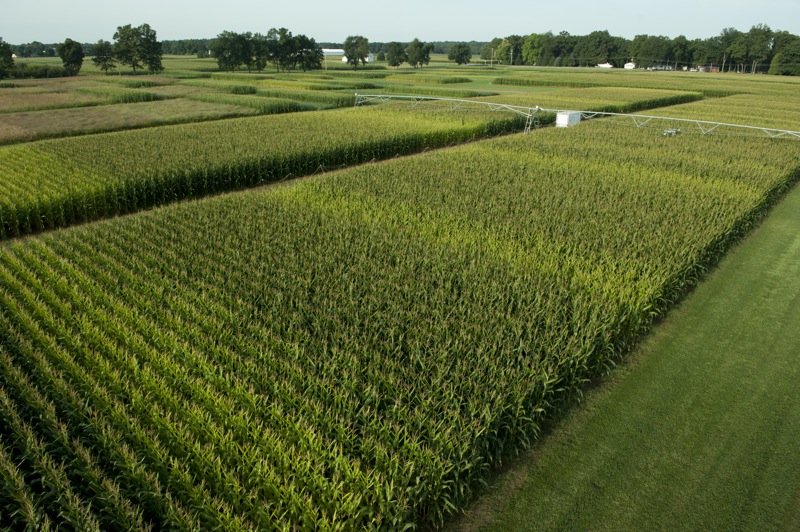Via MSU News, news.msu.edu
EAST LANSING, Mich. — Researchers at Michigan State University have helped develop a way for farmers to participate in carbon markets and get paid to reduce their use of nitrogen fertilizer, which represents one of the largest sources of greenhouse gas emissions from agricultural production.
develop a way for farmers to participate in carbon markets and get paid to reduce their use of nitrogen fertilizer, which represents one of the largest sources of greenhouse gas emissions from agricultural production.
The methodology, which was developed for the American Carbon Registry with support from the Electric Power Research Institute, will allow farmers to participate in carbon markets by creating greenhouse gas offsets by reducing the amount of nitrogen used to fertilize crops. These offsets can be sold to other carbon market participants to meet greenhouse gas emission reduction targets or requirements.
“Farmers already manage fertilizer to avoid large nitrogen losses, but they are often reluctant to further reduce fertilizer use because they fear doing so will decrease crop production,” said Phil Robertson, MSU crop and soil scientist and principal investigator for the new methodology. “The MSU-EPRI methodology uses an innovative approach to pay farmers to apply less nitrogen fertilizer, but more precisely so that crop yields aren’t jeopardized.”
The methodology was developed at the MSU Kellogg Biological Station’s Long-Term Ecological Research site, one of 26 National Science Foundation LTER sites and the only one that focuses on agriculture.
Additional bonuses include the methodology being easy to understand and implement, added MSU scientist and lead author Neville Millar.
Agriculture offsets are being considered by California regulators for eligibility in the state’s new regulated market, where greenhouse gas emitters like power plants and oil refineries are mandated to reduce or offset their emissions starting in 2013.
Regulatory approval of a fertilizer management offset methodology would enable greenhouse gas emission offsets created by farmers to be sold to regulated entities with mandatory emission reduction obligations under the cap-and-trade program.
Robertson’s research is supported in part by MSU AgBioResearch.
For complete details of today’s announcement, visit the National Science Foundation’s website.